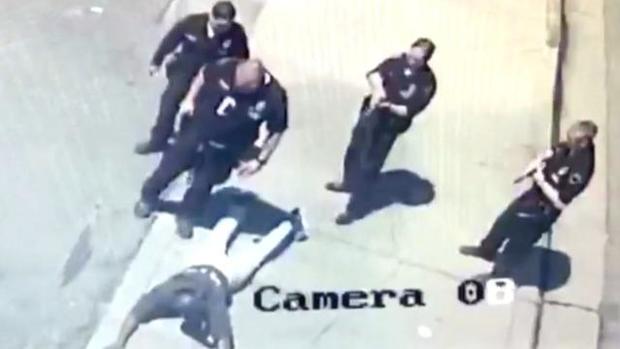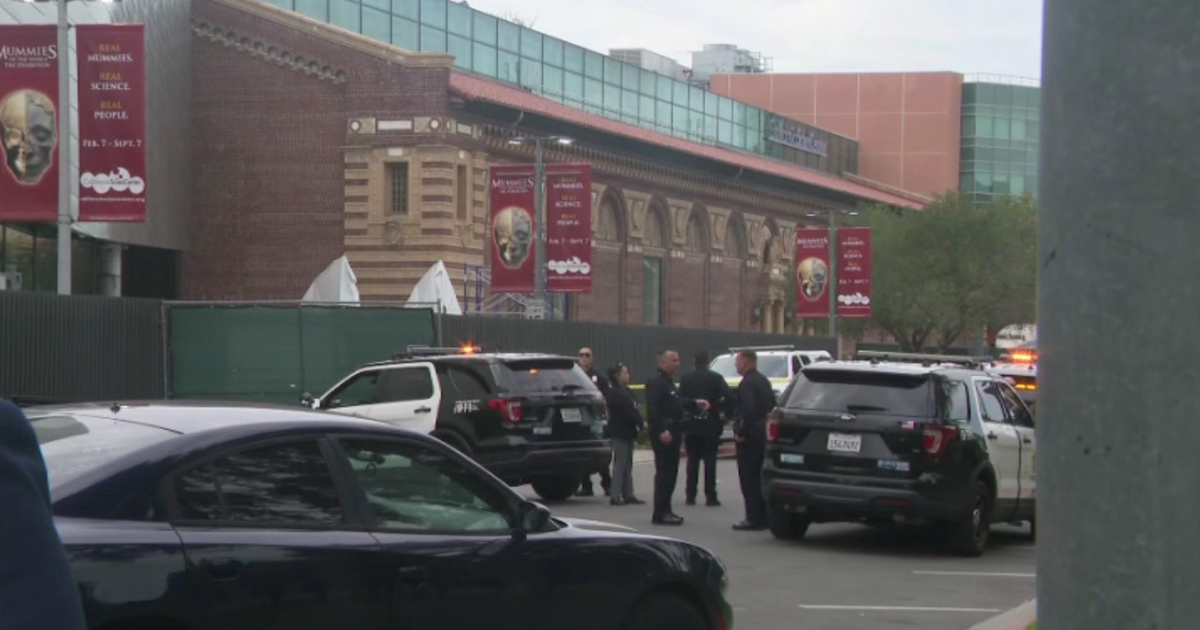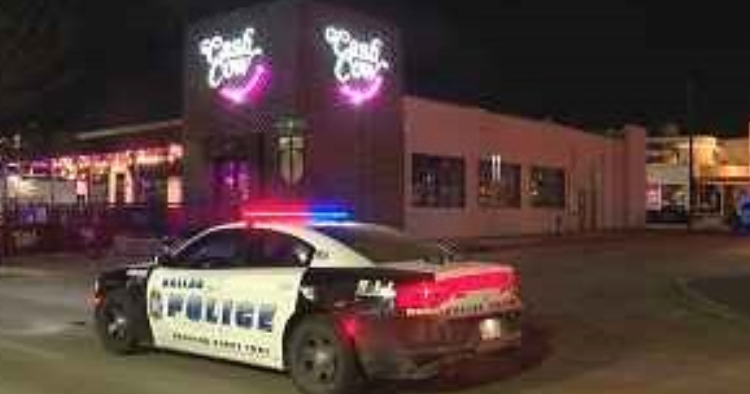Jay Pharoah says "sorry" from LAPD cops who forcibly detained him with guns drawn is "not enough"
Former "Saturday Night Live" comedian Jay Pharoah said he was scared and confused when the Los Angeles police stopped him in April. Earlier this week, Pharoah shared a video of the encounter on Instagram.
Surveillance video shows LAPD officers running toward him with guns drawn. They ordered him to the ground and handcuffed him. Pharoah said one officer placed a knee on his neck.
The police reportedly told him he matched the description of a suspect. Pharoah, who was released a short time later, told "CBS This Morning" co-host Gayle King he was a victim of racism.
In a statement to CBS News, the LAPD said, "We are aware of the video and it's under investigation."
Read more of King's conversation with Pharoah below.
Pharoah: I'm walking across the street, and then all of a sudden I hear, "Get on the ground." ... The cop from the left of me, he's just, he's coming, he's got his gun out. I don't know what's happening.
King: But you didn't think they were talking to you at first, or did you?
Pharoah: I didn't because Gayle, like I said, I don't have any run-ins with the law. I've never even had a ticket. ... I've never had guns pointed at me, Gayle. ... I've never had handcuffs put on me.
King: So they tell you to get on the ground. Do you immediately comply?
Pharoah: They said lay on the ground and spread your arms out like an airplane. The officer comes. He gets on top of me, he puts his knee on me, he puts my hands, my arms are back here, he puts on the cuffs. ... I'm shocked. I'm scared. I don't know why I'm being detained. I'm just totally confused right now. ... So they pull me up, telling me that I fit the description.
King: What was the description?
Pharoah: Description was a black man in gray sweatpants and a gray shirt.
King: Did you have on gray sweatpants and a gray T-shirt.
Pharoah: Oh yeah, I did. I did.
King: So what should they have done?
Pharoah: I think the right way to handle this situation would have been for the cops to calmly come up to me since they see I don't have anything on me. ... It should have been like, "Hey man, we're having a problem right now. We ask you if you have your I.D. because there's somebody who just ran, fled a scene from police officers and we're looking for him."
King: The officer kneeled. Where did he kneel on you?
Pharoah: The cop put his — he put his pressure, he put all of this, this is his — his knee, his leg, right here.
King: Is on your neck?
Pharoah: It was right here on the bottom of my neck.
King: This is before the George Floyd case, so in that moment, what were you thinking when he had his knee on your neck?
Pharoah: I just thought why? ... Now, I do not have 8 minutes and 46 seconds of an officer being on top of me like that, obstructing my airway and choking me. I don't have that. ... Luckily, they pulled me up and I got out of it. But it's like, why does it have to go to that extremity? ... When I'm an innocent bystander. ... We should never have to feel like our lives are in danger when we're doing regular human activities. I don't want to have to fear for my life when I'm going to Whole Foods and getting some chips and guac, or picking up a kombucha.
King: It's the assumption that bothers you. It doesn't seem like you were given the benefit of the doubt, does it?
Pharoah: That's the thing, Gayle. Black people in America in general. Why do we have to feel like we're guilty until proven innocent? Where the other side gets innocent until proven guilty? ... I saw a video yesterday where there was a gentleman and the cop was trying to apprehend him. ... The guy ran at him. The cop starts running. ... He's running. The suspect then gets in the car, backs out and almost hits the police officer.
King: Any shots fired?
Pharoah: No shots fired whatsoever.
King: When you said that you were scared, did you worry that you could lose your life?
Pharoah: Yes. When I see guns coming towards me, my natural instinct is, oh, snap. I could — I could die.
King: You said you were complying. Did you say, my name is?
Pharoah: I said, I don't have my I.D. on me, but if you Google Jay Pharaoh, you will see that you're making a serious mistake. A couple of minutes later, they came back and they said, "Oh, we got a call that you're not the guy. Sorry, my bad." "My bad" isn't good enough.
King: Jay, did they say "my bad"? Did they say that?
Pharoah: They said, "I'm — oh, sorry, sorry." That's not enough. ... There needs to be some practice with these policing, reforms. ... I don't want to see another 20 black people be martyrs for no reason.
King: Who was the first person you called after this happened to you?
Pharoah: I called my mom and I told her what happened. My dad was on the phone too and it just, you know, my mom started crying.
King: And that affects you too to see your family crying too.
Pharoah: It's a terrible feeling that the aftermath of such a terrible situation can cause that much impact on people around you. … I hit up Steve Harvey when it happened. He said, "You got a 'being black in America sandwich.'" And I said that's exactly it. I've eaten it and I know how it tastes.
King: Being black in America sandwich. Yeah, and it don't taste good.
Pharoah: You know what tastes good? Just being a beautiful black person.
King: Yes, that feels good, too.




